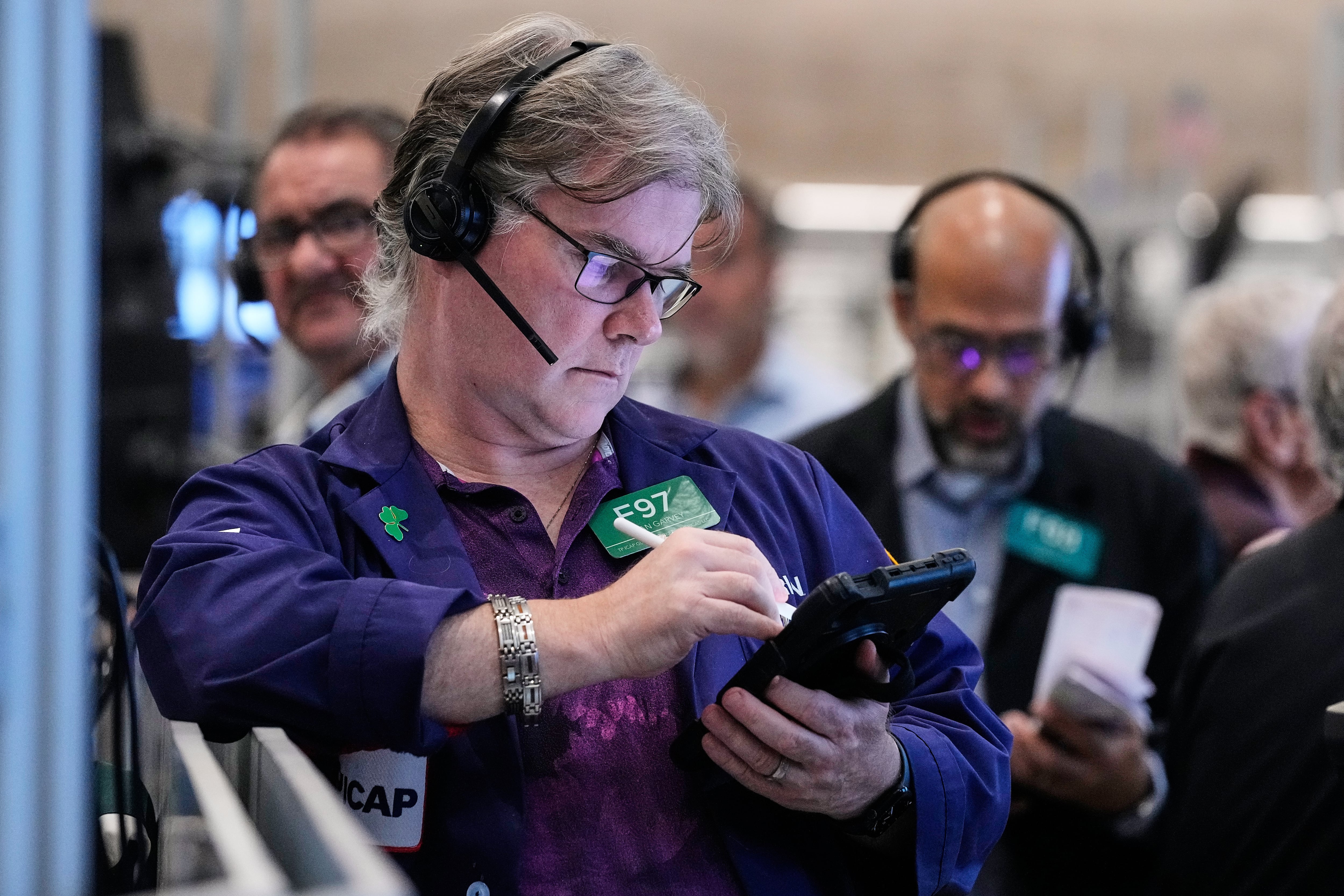NEW YORK (AP) — U.S. stocks are retreating from their records Tuesday as worries worsen about potentially escalating violence in the Middle East.
The S&P 500 pulled 1.1% lower, a day after setting an all-time high for the 43rd time this year. The Dow Jones Industrial Average was down 225 points, or 0.5%, in midday trading after coming off its own record. The Nasdaq composite was 1.7% lower, as of 11 a.m. Eastern time.
Oil prices jumped as worries ratcheted higher that worsening tensions in the Middle East could disrupt the flow of crude from the region. Iran is preparing to “imminently” launch a ballistic missile attack on Israel, according to a senior U.S. administration official, who warned Tuesday morning of “severe consequences” should it take place. A barrel of benchmark U.S. crude rose 3.7% to top $70.
The sharp swings halted, at least temporarily, what had been a run to records for U.S. stocks. They had been jumping on hopes the U.S. economy can continue to grow despite a slowdown in the job market, as the Federal Reserve cuts interest rates to give it more juice. The Fed last month lowered its main interest rate for the first time in more than four years, and it’s indicated it will deliver more cuts through next year.
The question is whether the cuts will ultimately prove to be too little, too late after the Fed earlier kept rates at a two-decade high in hopes of braking on the economy enough to stamp out high inflation.
A discouraging report arrived Tuesday, showing U.S. manufacturing weakened by more in September than economists expected. Manufacturing has been one of the areas of the economy hurt most by high interest rates, and the report from the Institute for Supply Management said demand continues to slow.
A separate report was potentially more encouraging. It showed U.S. employers were advertising more than 8 million job openings at the end of August. That was slightly more than July's number and better than what economists were expecting. A more comprehensive report on hiring will arrive on Friday, when the U.S. government details how many jobs U.S. employers created in September.
Besides the job market, another threat to the economy could lie in the strike by dockworkers at 36 ports across the eastern United States. It could threaten to snarl supply chains and drive up inflation if it lasts a while.
The workers are asking for a labor contract that doesn’t allow automation to take their jobs, among other things. So far, financial markets have been taking the strike in stride. Supply chain experts say consumers won’t see an immediate impact from the strike because most retailers stocked up on goods, moving ahead shipments of holiday gift items.
On Wall Street, the majority of stocks were falling. Among the exceptions were defense contractors that make weapons and oil-and-gas companies that could benefit from higher crude prices.
Northrop Grumman flew 2.7% higher, and Marathon Oil gained 2.8% for two of the bigger gains in the S&P 500.
Signet Jewelers dropped 8% after the diamond retailer said CEO Virginia Drosos is retiring, effective Nov. 4. The company named J.K. Symancyk, who was most recently the CEO of PetSmart, as her successor.
In the bond market, the yield on the 10-year Treasury fell to 3.71% from 3.79% late Monday. Yields fell after worries about the Middle East drove investors into Treasurys, gold and other investments seen as safer.
Yields had already been easing worldwide following an encouraging earlier update on inflation from Europe. Inflation among the 20 countries that use the euro currency came in below 2% in September for the first time in more than three years, and the slowdown could give the European Central Bank leeway to cut interest rates more quickly.
In stock markets abroad, European indexes swung from modest gains to losses. They fell 1% in France and 0.7% in Germany.
Farther east, a quarterly “tankan” survey by the Bank of Japan showed more large manufacturers are still feeling optimistic about business conditions than pessimistic. Japan also reported that its unemployment rate for August fell to 2.5% from 2.7% in July, in line with market expectations.
Japan’s benchmark Nikkei 225 rallied 1.9% to claw back some of its steep 4.8% loss from the day before.
Markets in China and South Korea were shut for holidays. Mainland Chinese markets, which had their best day since 2008 on Monday, will remain closed until Oct. 7 for the National Day break.
___
AP Writers Matt Ott and Zimo Zhong contributed.













